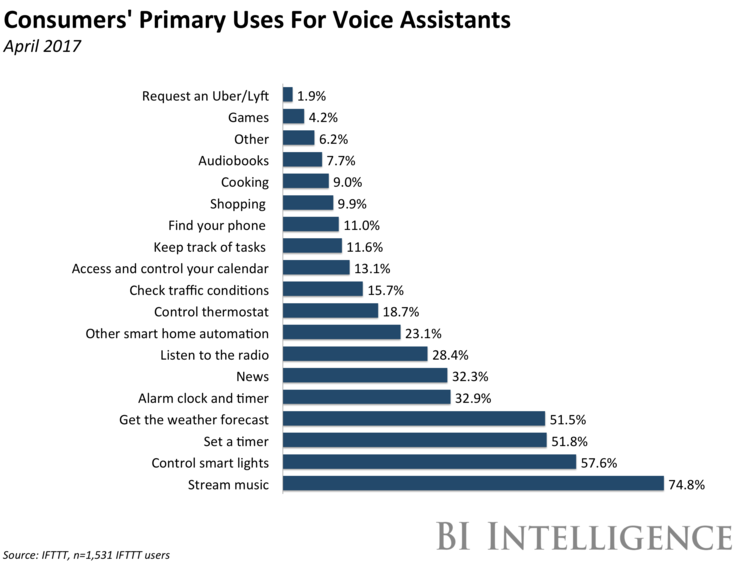I recently asked Siri to help me with an uncontrolled mobile voice search experiment. I wondered if the ranking of suggestions from a Siri query on my phone would mirror that of typical Google results from a typed search.
I asked Siri for an autobody shop near me. Granted it was just one example, but the results reinforced my hypothesis. The first suggestion was a larger, PPC-promoted and billboard-advertising shop; the second was my autobody guy, a smaller shop with a nice site, and impeccable reputation. Based on the factors described, the ranking made total sense and did mirror the typical typed search results.
It got me to thinking about what other local businesses must be experiencing, the impact of mobile voice search on their results, and how I could explain what it means to their business.
How Good is the Information?
The information behind Siri, Google, and Alexa’s answers is being mined from the data that already exists on the Web. The standard rules of search engine optimization, fresh content, and paid promotion still apply. There are also a few new rules in optimizing for voice search around keywords, phrasing, and the use of schema (more on that later).
What’s the Question and What’s the Context?
The answers you receive depends on your question, your device, and your location. For instance, asking Siri, “where should I tow my car after an accident?” from the side of the road in New Haven, you might be shown one to three of the best rated and most popular autobody shops closest to your current location. However, if you ask that question from your home or office, it could result in the most Google-popular option as a “featured snippet” and give you advice on what to do after an accident.
BTW – according to the results of a Business Insider survey, local searches from home based voice assistants only accounted for 10% of requests, although that number is rising.

What’s the Big Data?
Keep in mind that the result for products and services is also likely to be influenced by search, visit, and purchase history on any device, your level of social engagement with the vendor or type of products, as well as device tracking with geographic and demographic data. Customer retention and satisfaction plays an important role in the digital habits being tracked by big data, and therefore search results.
Why Should You – Local Business Owner – Care About Voice Search?
According to BrightLocal a local SEO management platform, 56% of voice search was done on a smart phone, looking for a local business. This is often done from home, office, in the car, restaurant or gym.
Did you know that over 80% of people will call or visit a business within 24 hours of their search? Clearly, evolving your digital and content strategy to optimize for voice search is growing in importance for local business visibility and engagement.
Also remember, the number of people using voice search will only continue to grow as the technology is adapted, and younger users grow older (over 75% of local daily searches are done via mobile with those aged 18-34.) BrightLocal estimates that the voice recognition market will become a $601 million industry by the end of 2019.
What’s Better Than Ranking #1? Position Zero
Have you noticed Google’s “answer boxes” in response to a voice search? As mentioned in a possible scenario above, Google has put itself between the consumer and the business site, answering queries with only the content of the best match on top of search results, a.k.a. “Position Zero.”

Moz Whiteboard Friday – How to Appear in Google’s Answer Boxes
Obviously, this is a heavily competitive position, and for local businesses, an incredible opportunity to be showcased as the local expert. To secure your business in a Position Zero, adding schema code to great content is one way to showcase your business in an answer box.
What’s the Best Way to Optimize For Voice Search?
When you start a question with “Hey, Siri…”, it’s not natural to just say “autobody repair near me.” You generally default to your humanity and ask a full question. As illustrated above, the full question tends to give greater context and clues about user intent.
Because voice search looks for the conversational question, it’s critical to write content in a natural, conversational voice. Your focus should be on incorporating a keyword into content that anticipates user intent and gives an answer in context. This comes in the form or articles, and/or an FAQ page, that Google can sample for the “answer box” snippets.
Based on our review of recent articles on search habits, especially out and about on mobile, are asking how to do things, where they can buy things, and who they should call for the best products and services. The winner of the voice search results will be those businesses who can create the content that answers “how,” “what,” and “where,” and have solutions that are classified as “best” and “easy.”,
Is Your Business Voice Search Ready?
If your business has a physical store, or operates locally or regionally, I highly recommend you get on this voice search bandwagon ASAP. As I’ve advocated for the past 20 years, the best way to weather any web search evolution is with a user and search-engine-friendly site, appropriately secured (with HTTPS URL), and with clear writing that answers customer questions, all of which greatly enhance your Google credibility.
The question isn’t “are people looking for my business via mobile voice search” it’s “will my business be first in a mobile voice search.” Here are the main steps you need to take to rank #1 or secure Position Zero:
- Make sure your website is user-friendly, has a mobile version, and has an HTTPS URL.
- Search engine optimize your website and all social channels for your products and services in the appropriate geographic area.
- Create or rewrite site and social content to answer conversational questions, that can be sampled for featured snippets.
- Cultivate customer retention, satisfaction, and reviews, creating raving fans.
Need a Little Help?
That list looks small, but actually involves a lot of time and expertise. Thankfully, my autobody guy didn’t ask me to help replace the parts that got smashed by that deer!
Little Fish Studios tried-and-true techniques still apply and can help your business evolve to be voice search ready. We specialize in serving local brick and mortar businesses who need help navigating the digital marketplace. Repair and maintenance of websites – and everything that leads to and from them – is our core capability. If you have a blog that’s been neglected, a design that needs refreshing, or off-site campaigns aimed at building audience and engagement, please give a call. Contact us for a complementary 10-point web health assessment.

Owner of Little Fish Studios
Web Design & Online Promotion
Marjorie is a self-taught designer, writer, editor, project manager, and marketing, business and networking coach. She always brings her clients the freshest design and marketing information, and her “Rolodex is always open.” Playing the role of “customer philosopher” inspires her copyrighting and design choices and client service. READ MORE

